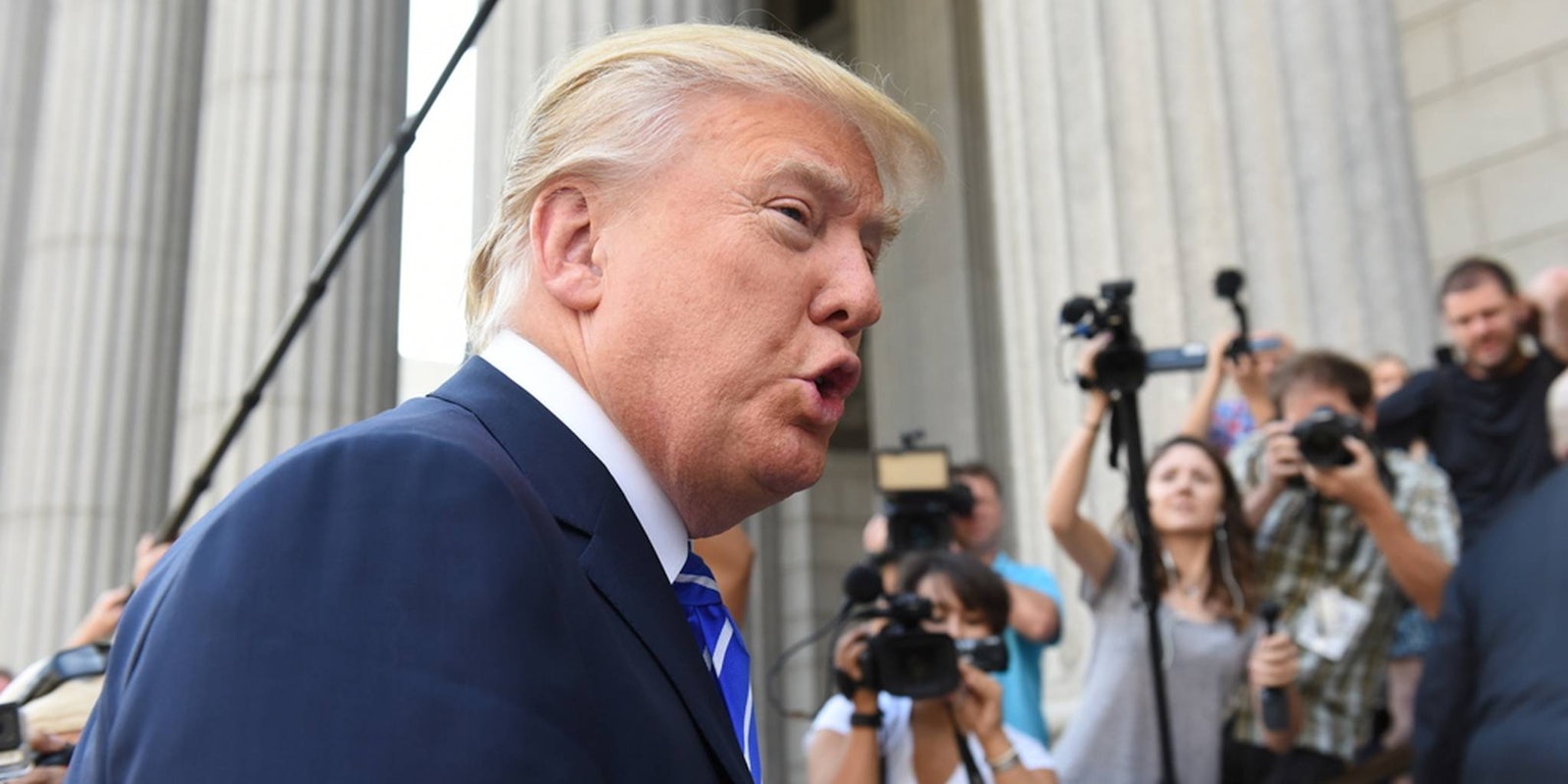Tech executives have taken to Twitter, Facebook, and their personal blogs to voice criticisms of Donald Trump’s executive order, which bans Syrian refugees and citizens of seven Muslim-majority nations from entering the United States.
Here are the responses from the most influential leaders in the industry.
Apple
Tim Cook made it clear where Apple stands on Trump’s order in an email to employees: “It is not a policy we can support… Apple would not exist without immigration, let alone thrive and innovate the way we do.”
He went on to say there are Apple employees directly affected by the immigration policy, and that HR, legal, and security teams would do everything they can to support them. Cook also said he has reached out to the White House to explain the negative effect the policy has on coworkers and the company.
You can read the full statement here.
Google has arguably taken the most direct counteraction to Trump’s order. The company made its largest humanitarian efforts to date by donating $4 million to four organizations: the American Civil Liberties Union (ACLU), Immigrant Legal Resource Center (ILRC), Interactional Rescue Committee (IRC), and UN High Commissioner for Refugees/UN Refugee Agency (UNHR).
Half of the donations came from Google employees, while the company matched the other $2 million.
Google also openly told any employees traveling overseas to get back to the United States.
The company’s CEO, Sundar Pichai, released a statement on the matter:
“It’s painful to see the personal cost of this executive order on our colleagues. We’ve always made our view on immigration issues known publicly and will continue to do so.”
Microsoft
Microsoft CEO Satya Nadella took to LinkedIn to highlight a section of a message company president Brad Smith sent to employees.
“As a company, Microsoft believes in a strong and balanced high-skilled immigration system. We also believe in broader immigration opportunities, like the protections for talented and law-abiding young people under the Deferred Access for Childhood Arrivals (DACA) Program, often called “Dreamers”. We believe that immigration laws can and should protect the public without sacrificing people’s freedom of expression or religion. And we believe in the importance of protecting legitimate and law-abiding refugees whose very lives may be at stake in immigration proceedings.”
CEO Mark Zuckerberg was one of the first to comment on the immigration ban. While his criticisms are fairly restrained, the post is filled with emotion and personal reflection:
Amazon
Amazon forwarded the Verge a message that was sent to the company’s employees.
“From the very beginning, Amazon has been committed to equal rights, tolerance and diversity — and we always will be… Our immediate focus is to make sure you all have the information you need to make travel decisions in the coming days and weeks.”
The company lists how its employees should handle travel arrangements. The full statement, which says very little about Trump’s policies, can be read here.
Netflix
A strongly-worded message from Netflix CEO Reed Hastings calls Trump’s actions “un-America.”
The social media site had a lot to say in just 140 characters…
https://twitter.com/Twitter/status/825513865794293761
…as did its CEO.
The Executive Order’s humanitarian and economic impact is real and upsetting. We benefit from what refugees and immigrants bring to the U.S. https://t.co/HdwVGzIECt
— jack (@jack) January 28, 2017
Elon Musk (Tesla, Space X)
The Tesla and Space X CEO is an avid Twitter user, and retained the composure and level-headedness he exhibits in just about everything he says.
The blanket entry ban on citizens from certain primarily Muslim countries is not the best way to address the country’s challenges
— Elon Musk (@elonmusk) January 29, 2017
Uber
Over the past few days, the ride-hailing company has dug itself into a hole that reached its lowest point when #DeleteUber started trending.
The company initially pledged to compensate drivers stuck overseas, and attached that sentiment with a lengthy statement from the company’s CEO.
But it faced strong criticism when it disabled surge pricing at JFK International Airport during a taxi strike against the immigration policy.
Uber CEO Travis Kalanick, no stranger to controversy, responded by donating $3 million in legal defense to affected drivers.
Lyft
This morning, Lyft announced it was pledging to donate $4 million over the next four years to the ACLU.
“Throughout our history, Lyft has worked hard to create an inclusive, diverse, and conscientious community where all of our drivers and passengers feel welcome and respect,” said Lyft CEO Logan Green. “Banning people of a particular religion from entering the U.S. is antithetical to both Lyft’s and our nation’s core values.”
Airbnb
Sometimes actions speak louder than words. Airbnb announced it would provide free housing to all refugees and anyone not allowed in the U.S.
Not allowing countries or refugees into America is not right, and we must stand with those who are affected.
— Brian Chesky (@bchesky) January 29, 2017
Airbnb is providing free housing to refugees and anyone not allowed in the US. Stayed tuned for more, contact me if urgent need for housing
— Brian Chesky (@bchesky) January 29, 2017


